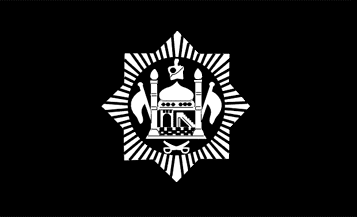JohannaK
Heroically Clueless

新書
Xīnshū
The New Book
The New Book, also known as the Black Book or the Blue Book depending on the region, is the fundamental book of the Iron and Blood Movement. There is no single author to it, rather it is a collection of thoughts and sayings, in the tradition of the Zhuangzi, of the founders, leaders, and plain followers of the early Iron Blood Movement. The comparison to the Zhuangzi is not casual: the Movement claims to be inspired by Daoist thought. Although it is not mandatory to have the book, to read it, or to teach it in schools, every household has at least a copy of it. On special occasions, it is freely distributed, while schools universally bring it into their curriculum to cover the mandated topics of Contemporary Society.
The book offers frequent and varied comment on Daoist maxims on governance as shown in the Daodejing. There is emphasis on its invisibility, in the seemingly effectless way that government should work. From the sum of tidbits and reflections stems a surprisingly coherent political thought that privileges a bureaucracy so pervasive and efficient that it would make government as swift, secret, and "as natural as the bloom of the peach tree flowers." In spite of the rejection of the inviolably hierarchical power and social structures of Confucianism, which characterised much of China's Imperial administrations, this bureaucracy seems shaped much in the same way, down to implying the necessity of a National Examinations System to staff it. The turn comes in the coupling of "invisible" with "transparent" in most passages that mention it. There is a gradual explanation that though government must work imperceptibly, it must be accessible to the common citizen.
This stems in the book from an egalitarian view of society, tempered by military comradeship into a conception of citizenship as universal brotherhood. Though no person is more or less worthy than any other, people are more or less capable than others. This is the justifiation for the entrenchment of military as well as bureaucratic hierarchies in and around everyday life. Uncharacteristically, the real life translation of some of these ideas has been effective, with effective mechanisms at all levels to allow for quasi-direct communication with both subordinates and people outside the system itself in a more or less equal footing. One of the results of the paradoxical ideas of the Movement is that while individual rights are enshrined, with free speech considered inviolable and universal voting rights instituted (granted that this and other rights are only actually accessible through military or civil service, but the large majority of people have served, been drafted, or are in the reserve), collective rights are at best eyed with suspicion. Unions, demonstrations and, of course, riots are banned. These take place in other forms, however. Societies not overtly political can hold unlimited size meetings, and free worker associations within the same company fill in for unions, unifying the workers' bargaining power. Of course their effectiveness is diminished, but that is the point.
On everyday life, the idea is that government must be the least intrusive. Once more this creates a curious situation where the bureaucracy is inescapable but its regulations notably lax on the individual. In short, it can be summarised as: pay taxes, be loyal; do whatever you want. To take it at face value, however, would be disingenous. Because here enters the enforcement of brotherhood. Every week meetings are held that nobody has to attend but everyone can. These are the One Blood Societies. Through different kinds of persuasion and social pressure, attendance is made quasi mandatory, and in them people discuss their lives, their problems, and matters of government. These meetings are classless. A Chairman of the National Council could sit besides a janitor or a vagrant. Many meeting places also offer free food. These are very much like secular churches, and typically the New Book is discussed, either overtly or through carefully referenced classics. Government policy is praised by fervent supporters and calculatedly planted attendants, aiming to build a social consensus around it. Whether this is achieved or not, the purpose of these Societies is to bring communities tight together, and to predispose them to the government line. They are somewhat modelled after Yan Xishan's Heart Cleaning Societies, and are presented as a utopian institution in the book.
Lastly, the book describes and idealises the epitome of all these values: the military. The military as a special communion of people united in a single goal to defend the country, its integrity, and the safety of their fellow citizens. Military service is desirable, if not mandatory, and consequently plenty of opportunities are offered at different stages to join at least the reserve army. As the epitome of the revolutionary values of the Movement, only military service or participation in the bureaucracy secure full rights for the individual. The military structure runs parallel to the bureaucratic, but the former wields executive power over the latter. The limited legislative and arbitration organs that substitute for parliaments and courts are inevitably headed by a military man, although bureaucratic training and expertise is a requirement, etc.
All in all, the New Book is a chillingly accurate prefiguration of the Iron Blood Movement program. To their credit, this program has been applied following the book as closely as it is imaginable. Their commitment to a coherent if seemingly paradoxical ideology is laudable as it is frightening. Nevertheless, the Iron Blood Movement is proving that there are alternatives within the spectrum from liberal democracy to absolute autocracy, and we should not hurry to dismiss it without assessing its merits.
Last edited:





